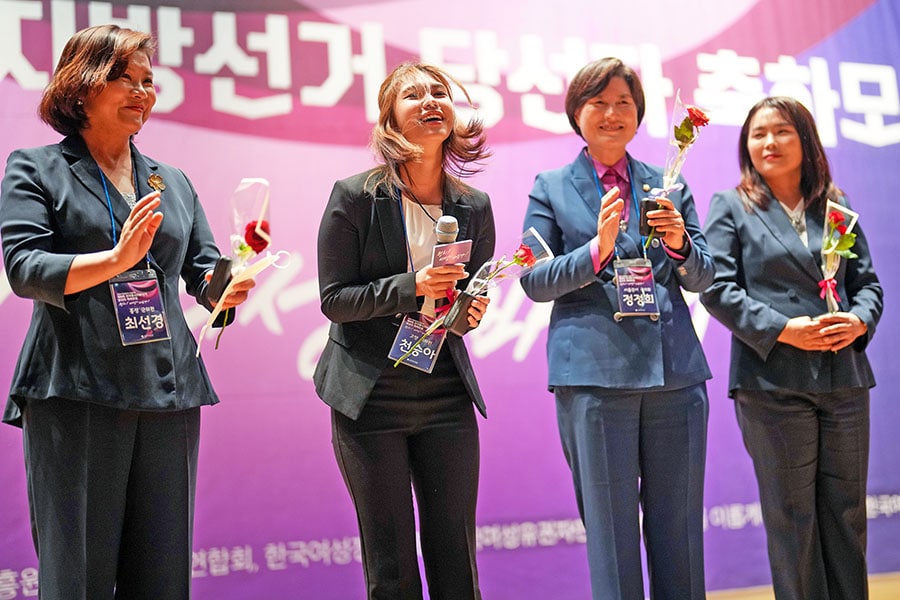
As young blood enters South Korean politics, new—and old—barriers emerge
Young blood is entering South Korean politics in droves after lawmakers this year lowered the minimum age limit for political office to 18 from 25. Among the 4,131 people who won their races, 11 were under 24 years old, including the youngest election winner in the country's history, a 19-year-old, but problems as old as politics itself are slowly emerging
 Cheon Seung-ah, 19, second from left, at a gathering organized by the Korea Women Parliamentarian Network in Seoul, South Korea, on June 15, 2022. In June, she became the youngest election winner in South Korea’s history. A new law allowed a record number of young people to run in local elections this year. But they face skepticism, cultural hurdles and problems as old as politics itself. (Chang W. Lee/The New York Times)
Cheon Seung-ah, 19, second from left, at a gathering organized by the Korea Women Parliamentarian Network in Seoul, South Korea, on June 15, 2022. In June, she became the youngest election winner in South Korea’s history. A new law allowed a record number of young people to run in local elections this year. But they face skepticism, cultural hurdles and problems as old as politics itself. (Chang W. Lee/The New York Times)
SEOUL, South Korea — Jung Seong-hoon, 22, shared the frustrations of young South Koreans looking at a bleak future: Jobs are scarce, rent is high, and debt is climbing. So last month, he ran for a spot on his local city legislature and won.
Jung exemplifies the young blood entering South Korean politics in droves after lawmakers this year lowered the minimum age limit for political office to 18 from 25. That led to a record number of people under 40 running in local elections in June — 416 candidates, up from 238 in 2018. Among the 4,131 people who won their races, 11 were under 24 years old, including the youngest election winner in the country’s history, a 19-year-old.
But even before their terms began Friday, they encountered problems as old as politics itself. They say they face a political ecosystem dominated by politicians in their 50s and 60s who are out of touch, a prohibitively high bar for fundraising and an opaque network of party officials whose favor they must curry to stand a chance.
They must navigate strict cultural barriers (one’s social standing is determined in large part by one’s age) and deal with an older electorate that sometimes dismiss them as “inexperienced” and “gullible,” some complain.
“There is an expectation that young people will contribute to bettering the world, but a lot of people raise concerns about our young age,” said Lee Ja-hyung, 23, who was elected to the assembly in Gyeonggi province near Seoul. “They’re concerned that our sense of judgment hasn’t been fully developed and we might be too easily swayed by people around us.”
©2019 New York Times News Service







